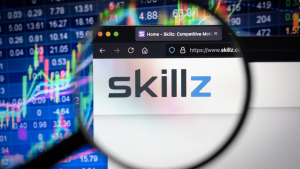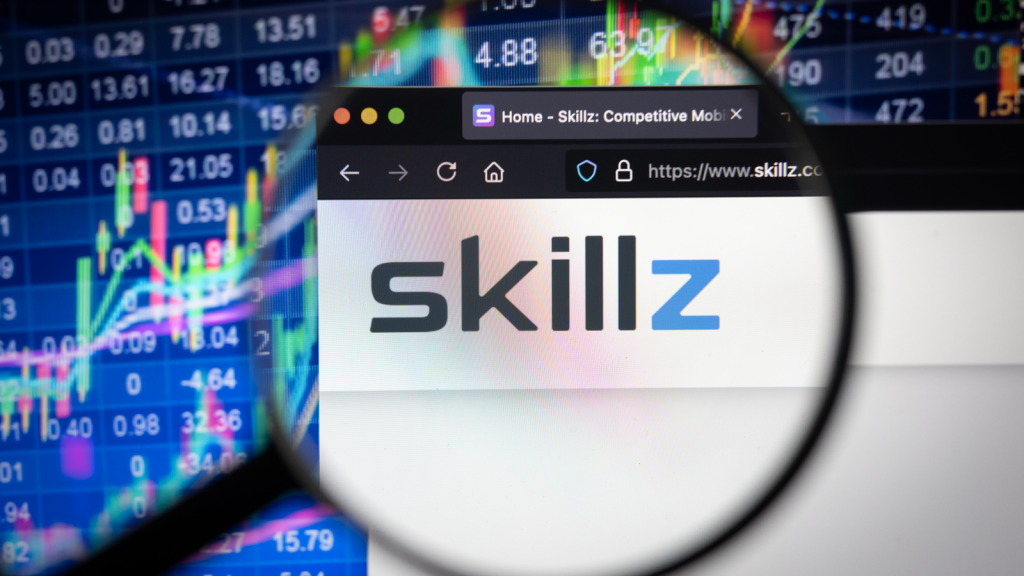Skillz Inc. (NYSE:SKLZ) can’t figure out how to make positive free cash flow. As a result, SKLZ stock has been cratering. In fact, the company recently had to raise $300 million in additional debt capital at a high coupon interest rate (with no convertible feature).

As a result, don’t expect SKLZ stock to recuperate any time soon. At least that will be the case until the company figures out how to stop bleeding so much cash.
I wrote about the fundamental cash flow problems at this gaming software and management company on Oct. 28 in my article, “Don’t Buy Skillz Until Its Revenues Catch Up to Expenses.” I discussed the basic reason why SKLZ is burning through so much cash — its extensive marketing expenses. The bottom line is investors shouldn’t expect SKLZ stock to turn around until its cash flow problems ease up.
Where Things Stand at Skillz
Since it seems that the company has to keep funding huge incentives for people to play and win at their clients’ games, the need for cash will continue. For example, its Q3 earnings report, released on Nov. 3, showed that its adjusted EBITDA was negative $41.7 million in the third quarter.
But more importantly, its cash flow from operations for the nine months ending Sept. 30 showed negative $103.3 million. After deducting $2.1 million capex expenses, the free cash flow (i.e., cash burn) was $105.1 million for the nine months. That works out to an annualized rate of about $140 million.
This could be one reason why Skillz announced on Dec. 9 it was going to raise $300 million in debt capital. The deal was priced on Dec. 15, 2021, at a coupon rate of 10.25%, which is very high. The fact that it was not structured as a convertible note probably indicates that there will little appetite on the part of investors for SKLZ stock.
Moreover, the 10.25% coupon rate is going to cost $30.75 million annually for the company. That will increase its annual cash burn by 22% (i.e., $30.75m/$140m).
In addition, this seems to imply that the cash burn rate during Q4 and the outlook for the next several quarters may have risen. For example, at the end of Sept. 30, Skillz had $540 million in cash, even after its cash burn. So why did it suddenly have to raise an additional $300 million? The only logical conclusion is that the company is concerned that its cash burn rate is rising fast.
What to Do With SKLZ Stock
As I noted in my Oct. 28 article, SKLZ stock peaked on Feb. 5, 2021, at $43.72. As of Jan. 18, almost a year later, the stock is at $5.66 per share. That’s a tumble of 87% from its peak on Feb. 5. That is a miserable return.
Moreover, the company’s stock reached a more recent peak on June 8, at $23.09 per share. That implies that SKLZ stock is now down 75.5% from its previous secondary peak. In other words, investors simply don’t believe whatever Skillz is selling.
Now that the company is digging itself into an even bigger cash flow hole, there is little chance the SKLZ stock is going to turn around. The only way this can happen is if the company can show that its cash burn issues have improved. But the fact that it had to raise more cash at a high rate implies just the opposite.
As a result, most judicious investors will wait until they can quantify when and how much profit or cash flow the company will make. That seems to be the only way that value investors can make an investment in SKLZ stock with any sense of a margin of safety.
On the date of publication, Mark R. Hake did not hold any position (either directly or indirectly) in the securities mentioned in this article. The opinions expressed in this article are those of the writer, subject to the InvestorPlace.com Publishing Guidelines.
Mark Hake writes about personal finance on mrhake.medium.com and runs the Total Yield Value Guide which you can review here.
